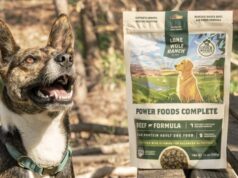
In a significant breakthrough study published in Science Advances on July 31st, 2024, researchers have developed a nasal COVID-19 vaccine that has proven highly effective in preventing infection in animal trials. This innovative approach not only promises to enhance immunity but also offers a needle-free alternative to traditional vaccines. The development, led by a team of scientists at a leading research institution, represents a potential game-changer in the ongoing battle against COVID-19.
This breakthrough, demonstrated in hamsters, could reshape the landscape of pandemic control. Researchers at Washington University School of Medicine in St. Louis have developed this innovative vaccine that targets the virus’s entry points – the nose and mouth. Unlike traditional shots that primarily protect against severe disease, this nasal spray aims to prevent infection and transmission altogether.
The nasal vaccine triggers a robust immune response in the mucosal lining of the respiratory tract, the very place where the virus first takes hold. This localized response not only reduces viral load in infected individuals but also appears to block the shedding of the virus, thus interrupting the chain of transmission.
In the study, vaccinated hamsters were exposed to the virus. While most became infected, those who received the nasal vaccine had drastically lower viral levels in their airways compared to those who received a standard injection. Crucially, when these infected hamsters were placed with healthy ones, the nasal vaccine recipients did not transmit the virus, unlike those vaccinated with a shot.
Why This Matters
- Pandemic Control: Stopping transmission is the holy grail of pandemic control. A vaccine that prevents both infection and spread could drastically curb outbreaks and potentially end the pandemic sooner.
- Protection for Vulnerable: While current vaccines offer significant protection against severe illness, they don’t fully prevent infection. This leaves vulnerable populations, such as the immunocompromised, still at risk. A nasal vaccine could offer them a new layer of protection.
- Ease of Administration: Nasal sprays are generally easier to administer than injections, especially in children and those with needle phobias. This could lead to higher vaccination rates and broader community protection.
Challenges and Next Steps:
- Human Trials: The promising results in hamsters need to be confirmed in human trials. While the researchers are optimistic, the human immune system is complex, and there’s no guarantee of similar efficacy.
- Production and Distribution: Scaling up production and ensuring equitable distribution of a new vaccine type will present logistical challenges.
- Long-Term Effectiveness: The duration of protection offered by the nasal vaccine is still unknown. Booster doses may be required.
A Note of Caution: While these findings are promising, it’s important to remember that this is just one study. More research is needed before this vaccine becomes a reality. However, it undoubtedly opens a new and promising avenue in the fight against COVID-19 and potentially other respiratory diseases.










